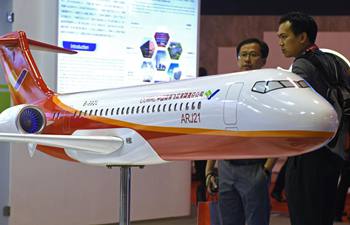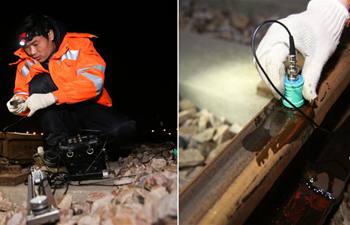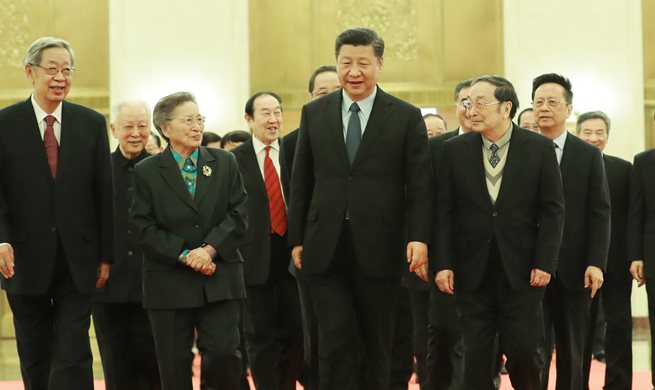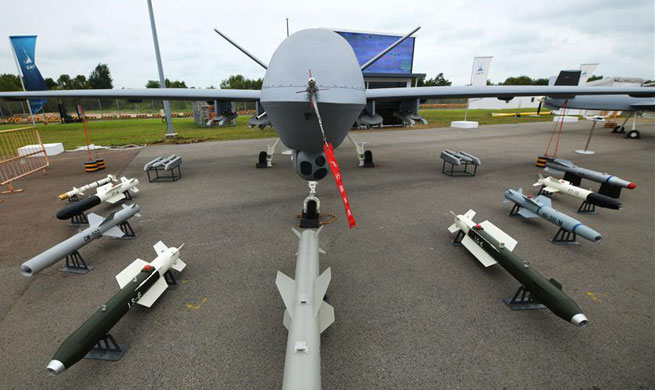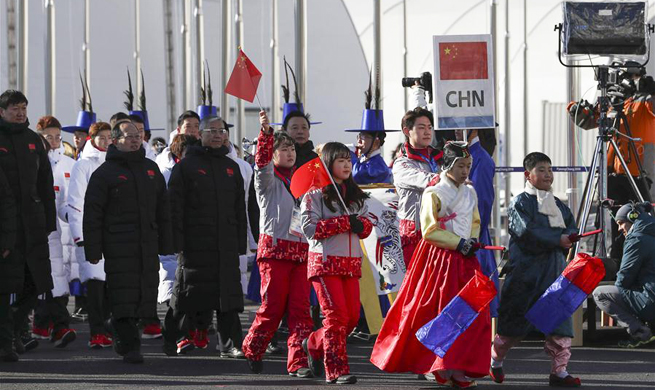GUANGZHOU, Feb. 7 (Xinhua) -- At around 10 a.m. on Monday, Li Shan and her husband Wang Gaocai had a brief break at a rest stop set up for migrant workers returning to their hometowns by motorbike for Spring Festival, or the Chinese Lunar New Year.
Finishing a tiring four-hour drive, the couple faced another seven hours on the bike before reaching their home in Guangxi Zhuang Autonomous Region, more than 400 km from where they work in neighboring Guangdong Province.
The rest stop, one of 13 of its kind in Guangdong's Zhaoqing City, offers hot tea, ginger soup and heaters to relieve the motorcyclists from the cold.
"Still, the trip is an ordeal," said Li, 35.
This was her fifth homecoming trek by motorbike -- a freezing, tedious and dangerous journey she said she hoped would be her last.
"We will work harder to buy a car this year or next after saving enough to build a new home," she said.
Wrapped up in cotton-padded jackets, waterproof coats and leather knee pads and carrying bulging bags on the pillion, fleets of homebound motorcyclists were once more common in China. They made headlines as a symbol of how much migrant workers value the Spring Festival, which serves as a once-a-year family gathering for many.
However, there are signs that such heroic trips may eventually become a thing of the past, thanks to the country's ever-sprawling railway network and increasing car ownership.
Provincial transport authorities estimated that there would only be 200,000 motorcycle trips through Zhaoqing, a stop on the route to Guangxi and Guizhou, during this year's 40-day Spring Festival travel rush, which started Feb. 1. The number is a sixth of the peak number in 2013.
"The trend is clear. I guess I will not see the fleets a year or two from now," said Li Xiumei, a volunteer at the rest stop.
The couple joined a 15-member homecoming fleet of motorbikes in 2014. This year, they had only two fellow travellers.
The "motorbike fleets" emerged as more quality roads were built.
Li and Wang started working in the Pearl River Delta in 2004. Since a train ticket was impossible for them at the time, the couple took coaches with a number of transfers to return home until 2014, when roads were built in their village.
"The road was paved to our doorsteps. So we switched to motorbikes to avoid the transfers," Li said.
However, the explosive development of China's railway networks,
especially in the landlocked western regions from which many migrant workers hail, has alleviated the pressure of buying a ticket during the travel rush.
By the end of 2017, China had 25,000 km of high-speed railway in operation, accounting for 66 percent of the world's total length.
The local government has also offered more help.
State-run China Railway Guangzhou Group Co., Ltd. will run more than 80 special trains -- a record high -- for migrant workers during the travel rush, providing free rides for some from registered poor families.
However, like her fellow villagers, Li is more attracted to the idea of owning a car.
"I want a China-made SUV. That will not be too expensive," she said, adding that her budget is 100,000 yuan (15,900 U.S. dollars).
Oversized luggage, precariously perched on the pillion, has also become less of a common sight.
This year, Li only brought her son and daughter some clothes, imported cookies and candy.
"Not much stuff is worth such a long trip. You can shop online. Even the elderly in our village can do that," she said.







